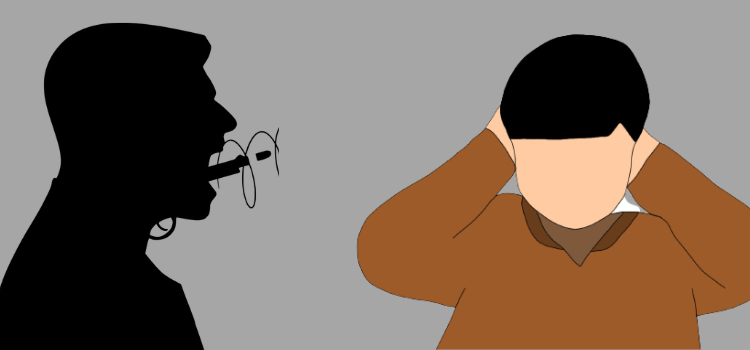Conundrum of hate speech in India : a judicial perspective
Posted On : January 12, 2023

Table of Contents
ABSTRACT
Freedom of speech with certain restrictions is recognised as a fundamental right under the Constitution of India. But excessive (mis)use of this fundamental right has led to serious implications, primarily resulting in violence in the country. In the recent past there has been a surge in the rising cases of hate/ abominate speech and resultantly violence has been the consequence. According to media reports in 2020 there was a 500% rise in cases filed under abominate speech laws in 7 years. While 2014 (323 cases) saw the least number of cases in 7 years, the year 2020, with 1,804 cases, saw the highest. This research is an effort to analyse abominate speech through the prism of judicial perspective. The study will find out the causes of abominate speech in India. It will also explore the legislative and judicial approach towards abominate speech vis-a-vis the incidents of abominate speech in India. The research will also explore the remedies to abate the issue of abominate speech in India.
INTRODUCTION
Freedom of speech with certain restrictions is recognised as a fundamental right under the Constitution of India. But excessive (mis)use of this fundamental right has led to serious implications, primarily resulting in violence in the country. In the recent past there has been a surge in the rising cases of abominate speech & resultantly violence has been the consequence. According to media reports in 2020 there was a 500% rise in cases filed under abominate speech laws in 7 years. While 2014 (323 cases) saw the least number of cases in 7 years, the year 2020, with 1,804 cases, saw the highest. This research is an effort to analyse abominate speech through the prism of judicial perspective. The study will find out the causes of abominate speech in India. It will also explore the legislative & judicial approach towards abominate speech vis-avis the incidents of abominate speech in India. The research will also explore the remedies to abate the issue of abominate speech in India.
Legislative Outline
The various variants of abominate speech are recognised under the statutory laws, despite not particularly stated in any statute at all. According to the Indian Penal Code's sections 153A,153B, 295A, 298, 505(1), & 505(2), any spoken or written words that incite hostility, hatred, or insults based on race, caste, ethnicity, culture, language, region or other factors are illegal & subject to punishment. Sec 153A punishes the encouragement of hostility between various groups. Sec 153B penalises allegations & claims that are harmful to national integration. Sec 505 penalises rumours & disinformation that encourage hostility among the community. Sec 295A makes it illegal to disparage someone's religious beliefs by using language with malice or intent.
Judicial Perspective
N.V. Sharma Vs Union of India In N.V. Sharma Vs Union of India, the Supreme Court(SC) had rebuked a former spokesperson of the ruling Bharatiya Janata Party, Nupur Sharma, over her controversial comments about the Prophet Muhammad during a TV debate in May end 2022 which incensed Indian Muslims and outraged Islamic nations. The court asked the suspended spokesperson to apologise to the whole country, observing that she has threatened the security of the nation. The Court had said that “her loose tongue has set the entire country on fire” and blamed her for “igniting emotions across the country” adding that her outburst is oversee for the unlucky incident at Udaipur, where a tailor was murdered.
Shaheen Abdulla Vs Union of India and Others
Recently, the SC in this case passed an interim order and held that “immediately as and when any speech or any action takes place which attracts offences such as Sections 153A, 153B & 295A & 505 of the IPC etc., suo motu action will be taken to register cases even if no complaint is forthcoming and proceed against the offenders in accordance with law. Any hesitation to act accordingly with this direction will be viewed as contempt of this Court and appropriate action will be taken against the erring officers. We additionally make it clear that such action will be taken irrespective of the religion that the maker of the speech or the person who commit such act belongs to, so that the secular character of Bharat as is envisaged by the Preamble, is preserved & protected.” The interim directions were primarily meant for the police of Delhi, Uttar Pradesh & Uttarakhand. The court issued notices to above three States and asked them to submit reports on action taken on abominate speech cases.
Pravasi Bhalai Sangathan Vs Union of India and others
The SC in this case analysed the issue and stated that abominate Speech marginalises individuals based on their identity that abominate Speech lays the foundation for attacks on the vulnerable people including violent ones. It also observed that issue of abominate speech deserved deeper consideration by the Law Commission of India.
State of Karnataka Vs Praveen Bhai
In this case the SC held that if the speeches “are likely to trigger communal antagonism and hatred”, the concerned authorities should issue prohibitory orders.
Tehseen S.Poonawalla Vs Union of India and others
In this case, the SC issued directions to states regarding preventive, punitive, and remedial measures to be taken in respect of mob lynching.
Kodungallur Film Society and another Vs Union of India and others
In this case the Court held that “abominate crimes as a product of intolerance, ideological dominance and prejudice ought not to be tolerated; lest it results in a reign of terror.” The PIL highlighted law and order problems arising out of the release of the film Padmavat on the ground that it offends cultural/religious sentiments.
Analysis & Suggestions
Speech has the potential to be both constructive as well as destructive. Despite numerous provisions & judgments the problem of abominate speech is increasing. There is a need to analyse how this issue can be addressed. Some suggestions are mentioned below:
1. A social problem cannot be solved outside the society. The solution meant for the benefit of society must be found from within the society and with the involvement of society. Law and society have a deep & intense relationship with each other and their segregation can be disastrous. One is hollow without the other. Therefore education as a means & mode has been proposed as a solution to bring transformation in the society in addition to the study of revamping existing laws. Existing education too has its own flaws and its amalgamation with the legal approach may not be fully effective. Hence removal of such deficiencies in the existing educational setup is also equally crucial.
2. Appropriate mode of education is one such component that has the potential to achieve the desired goals in the long run. It can bring a transformation in the society if channelled in the right direction. The annals of history have the evidences of bringing change & transformation in the society through constant efforts of educating the masses in addition to protests, struggle & legal backing. Widow remarriage, prohibition of sati/devadasi system & prohibition of child marriages, are certain examples of transformation in the societal outlook through combined endeavours of law & education.
3. The New Education Policy has indeed shown some ray of hope in the refinement of education system in India. Although overnight change is not possible but one step taken today in the right direction can result in a sparkling and radiated future tomorrow. Education has the potential to illuminate the minds & change the thinking of the people and that is why education has an eternal effect on one's life. It enables people contemplate & behave in a particular way. Not only does it help ameliorate personal satisfaction of the individual but also of society. Education augments human personality, thoughts & social skills and also prepares people for life experiences. Education has the ability to reinforce our thoughts & strengthen our character & behaviour towards others. Probably that is why it is said that 'pen is mightier than sword'.
4. There is an urgent need to have elaborate law on abominate speech rather than having scattered & indirect provisions on the same.
5. Stringent punishments for proven abominate speech need to be imposed. Although freedom of speech is equally important but nation's security cannot be compromised in the name of free speech. Punishment need to be more stringent when such offence is committed by a celebrity or a political personality as it has more chances of spreading hatred
6. The habit of appropriate speech must be inculcated in people right from their childhood so that people become responsible citizens.
7. The fundamental duty of parents to send their children to school should be extended to teaching & inculcating the moral values in them too.
8. Lastly, a self-check & self-responsibility is a must while choosing one's words. Tolerance towards each other must prevail.
CONCLUSION
Words can make and words can destroy. Excess of everything is bad. Hence, too much of freedom of speech can also yield disastrous results. The amalgamation of efforts of legislative, judicial & educational organs towards mitigation of abominate speech can certainly bring positive results. The two way approach of people to government & government to people in understanding their perspectives is also pertinent. The failure to address the malaise can be dangerous for the security of the nation. This is high time to sincerely delve deeply & seek redressal.
Article by Advocate Anik.























